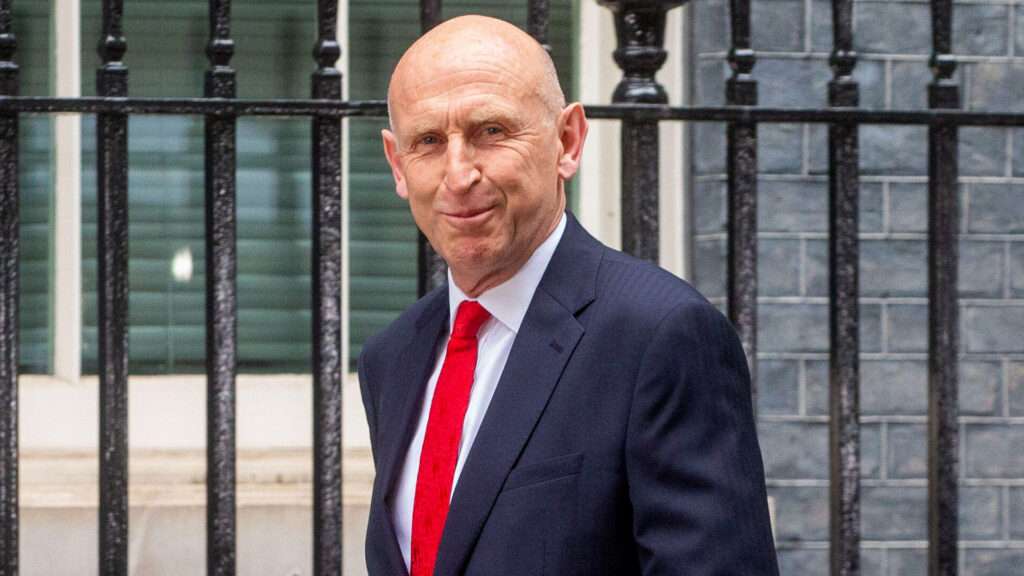A former European Commission leader has predicted Britain will rejoin the European Union within the next 15 years, despite ongoing resistance from current UK leadership.
Romano Prodi, who served as President of the European Commission from 1999 to 2004, expressed his belief that the UK would eventually return to the EU fold, saying, “I’m betting that in 15 years the UK will come back.”
However, Jean-Claude Juncker, another former European Commission chief, takes a far more cautious view. In July, he argued it could take “a century or two” for the UK to rejoin, cautioning, “When you leave a boat, you can’t get back on the same boat.”
Meanwhile, Prime Minister Keir Starmer has consistently ruled out a return to the EU in the foreseeable future. Earlier this year, Starmer reinforced his stance, stating, “I’ve been really clear about not rejoining the EU, the single market or the customs union – or [allowing a] return to freedom of movement.”
Despite his firm stance, he is actively working to improve UK-EU relations, which he says have suffered under previous leadership, promising instead to “make Brexit work.”
Cross-Party Push for Closer Ties Gains Momentum
This week, the formation of a new All-Party Parliamentary Group (APPG) on Europe aims to bring together MPs across the political spectrum in hopes of fostering a stronger relationship between the UK and the EU.
Chaired by Labour MP Dr. Rosena Allin-Khan and Conservative peer Lord Kirkhope, the APPG seeks to identify “areas of mutual cooperation and interest” and explore potential paths to a more collaborative UK-EU relationship.
The formation of this group underscores a growing appetite for reevaluation, with MPs now voicing the need for practical improvements to the Brexit arrangement — particularly in areas like security, trade, and economic cooperation. The APPG’s first meeting took place on Tuesday, and further efforts are expected as members advocate for revisiting and enhancing UK-EU ties.
This week also saw the UK score a significant diplomatic success in the form of a major defense agreement with Germany, marking the first major step in Starmer’s broader plan to “reset” relations with the EU.
Under the agreement, German Luftwaffe aircraft will operate from UK bases to safeguard the North Atlantic against potential threats, particularly from Russia. Additionally, the deal includes the creation of a new munitions plant in the UK, which is expected to bring around 400 jobs.
John Healey, the UK’s defense secretary, described the agreement as a “major strengthening of Europe’s security” and hailed it as a “milestone moment” in UK-German relations.

Experts Urge Broader EU Collaboration
While Starmer’s defense deal has been welcomed by many as a positive step, several prominent voices are calling for an even bolder approach to strengthen UK-EU relations.
Sir Nick Harvey, a former armed forces minister and the CEO of the pro-EU organization European Movement, praised the defense deal as “excellent news for Britain, our defense, and our industries”. He described Germany as “a crucial partner” but argued that Starmer’s administration should go further.
According to Harvey, the UK’s renewed relationship with Germany should pave the way for deeper cooperation across a range of critical challenges, from climate policy to trade regulation and shared intelligence. “Keir Starmer and his new government should now follow through and take their reset in UK-EU relations into all the other major challenges we face together,” he added.
As such, while rejoining the EU remains unlikely in the near term, the recent agreement with Germany highlights that pragmatic partnerships are still viable. For many, these renewed bonds with European allies represent a first step in repairing UK-EU relations.
READ ALSO: Amidu Calls for Non-Partisan Activists to Defend Constitution





















